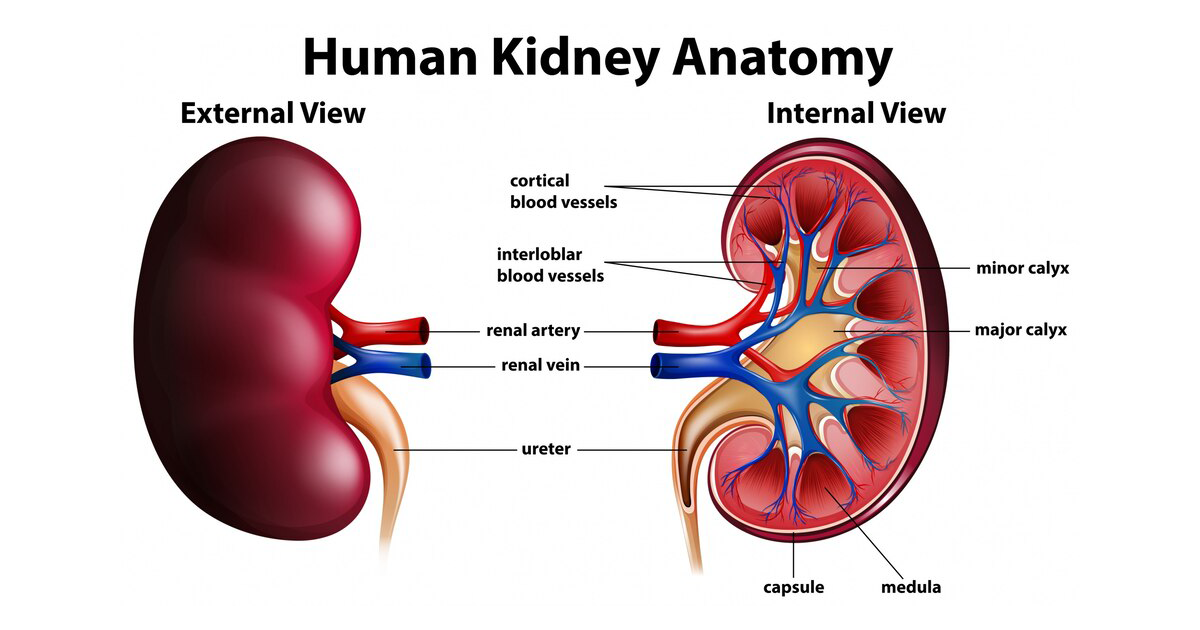
A Wonderful Organ Kidney
The kidneys are essential organs in the human body, crucial for filtering out harmful waste and maintaining fluid and electrolyte balance. Each kidney, roughly the size of a bean and located on either side of the spine in the lower back, plays a complex role in producing urine. This urine, formed by removing toxins and excess water, flows through the ureters to the bladder, which stores it until it is excreted through the urethra.
In adults, kidneys measure about 10 cm by 6 cm by 4 cm and weigh between 150-170 grams. The urinary system includes two ureters, each about 25 cm long, that transport urine to the bladder. The bladder, a muscle-lined reservoir in the lower abdomen, can hold 400-500 ml of urine before signalling the need to urinate. The urethra, which varies in length between genders, is the final passage for urine expulsion. Despite these differences, the kidney’s structure and function are consistent across genders.
Where Are They Located
What do Kidneys do?
- Waste Removal: They filter blood to remove waste products like creatinine and urea, which are then expelled as urine.
- Fluid Regulation: They manage fluid balance by excreting excess water and retaining the necessary amount, preventing fluid buildup.
- Mineral Balance: They regulate minerals and chemicals such as sodium, potassium, and calcium, ensuring proper bodily function.
- Blood Pressure Management: They produce hormones that control water and salt levels, helping to maintain stable blood pressure.
- Red Blood Cell Production: They secrete erythropoietin, which stimulates red blood cell production; a deficiency can lead to anemia.
- Bone Health Maintenance: They convert vitamin D into its active form to aid calcium absorption, crucial for healthy bones and teeth.
Symptoms of Kidney Diseases
- Swelling of the face
- Loss of appetite, nausea, vomiting
- High blood pressure - Hypertension
- Anemia and weakness


